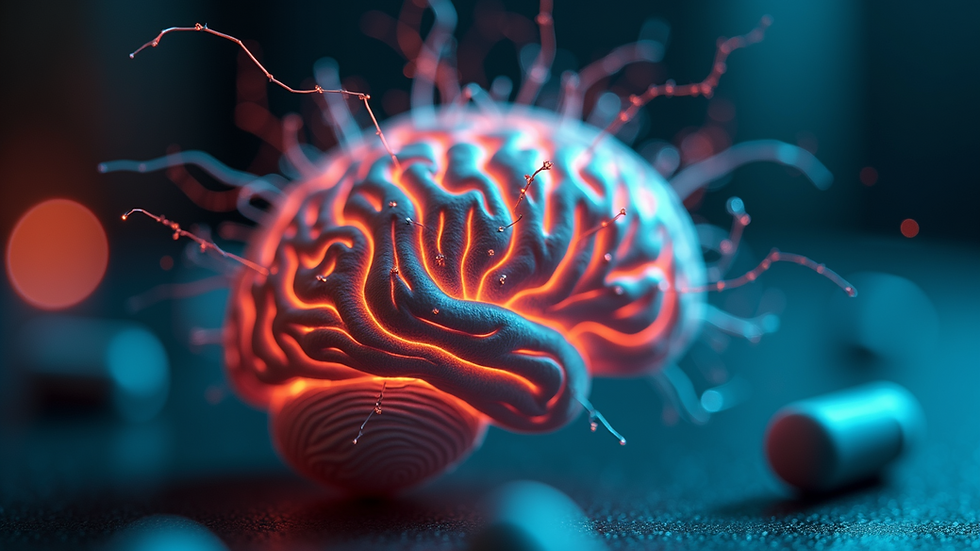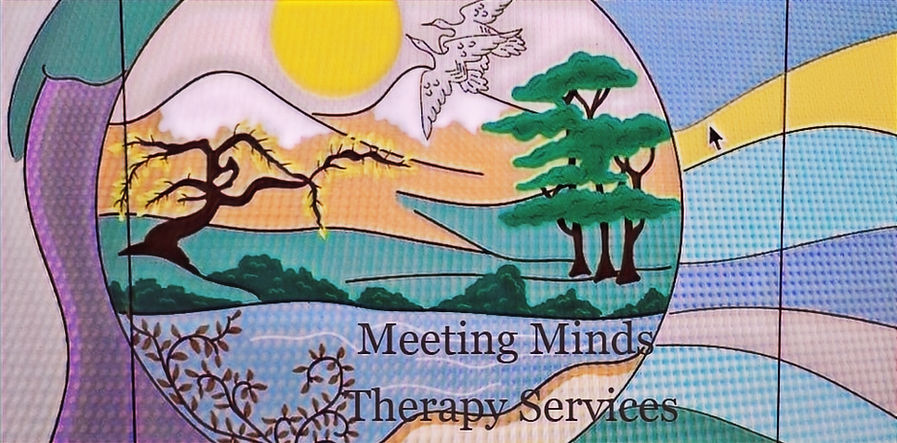Understanding the Neuroscience of Addiction and the Role of Therapy in Recovery
- Lyn Reed
- Jul 5, 2025
- 4 min read
Addiction profoundly affects both physical health and brain function. It's more than just a bad habit; it fundamentally changes how the brain operates.
Why do some people struggle to break free from addiction while others succeed? The answer lies in the brain's complex chemistry.
Put simply, addiction involves:
craving
temporary release or pleasure
negative consequences
an inability to give it up
Have you ever wondered why addiction is so hard to overcome? Understanding the brain's role can provide some answers.
The Brain’s Reward System
At the heart of addiction lies the brain’s reward system. This system is activated during enjoyable activities, like eating or spending time with friends. Chemicals in the brain, like dopamine, produce feelings of pleasure.
Addictive substances—such as drugs, alcohol, or even certain activities like gambling—can disrupt this system. They cause a massive release of dopamine, creating feelings of euphoria that far exceed the satisfaction from everyday activities.
Studies show that repeated exposure to these substances can lead to a 200-300% increase in dopamine levels, altering the brain's chemistry.
Over time, the brain begins to depend on these substances for pleasure, reducing sensitivity to natural rewards and promoting compulsive use, even when it leads to negative outcomes.
These changes are critical in understanding why addiction is often seen as a chronic condition characterised by relapse. Breaking down these complex processes can help us see why therapy is so essential in recovery.
How Addiction Changes the Brain
Research in neuroscience highlights several key areas affected by addiction:
The Prefrontal Cortex: Responsible for decision-making and impulse control, this area becomes impaired with addiction.
Studies indicate that
a) Individuals with addiction may have a 25% reduction in activity in this region, making it hard to resist cravings and make sound decisions.
b) About 70% of those in recovery report heightened emotional discomfort.
The Amygdala: This region processes emotions and can become overly active during withdrawal. An overactive amygdala can increase anxiety and stress, often leading to substance-seeking behaviour.
The Nucleus Accumbens: This is the brain's pleasure centre. Frequent substance use makes this area hypersensitive, resulting in strong cravings and compulsive behaviours. Research suggests that the nucleus accumbens can remain altered for up to three months after ceasing substance use.
These alterations demonstrate why addiction often leads to compulsive behaviours and loss of control, showing the significant impact it can have on cognitive and emotional well-being.
The Role of Therapy in Addiction Recovery
Therapy is vital in the recovery process, offering essential behavioural and emotional support. Here’s how therapy can help individuals on their recovery journey:
1. Cognitive Behavioural Therapy (CBT)
CBT is a leading therapeutic approach in treating addiction. It focuses on recognising and changing negative thought patterns and behaviours tied to addiction. For example, a study found that 60% of people who undergo CBT report improved coping skills for handling substance use triggers.
For instance, Mark (not his real name), a recovering addict, used CBT to identify his triggers and develop strategies for healthier coping mechanisms to manage cravings effectively. Techniques include keeping a diary to track cravings and practising stress-reduction techniques, like mindfulness or breathing exercises.
2. Motivational Interviewing
Motivational interviewing helps individuals explore personal reasons for change and resolve any mixed feelings about quitting. This approach aids individuals in articulating their goals, creating a sense of personal responsibility in recovery. Research shows that individuals who participate in motivational interviewing are 50% more likely to make substantial progress in their recovery compared to those who do not.
Some of the questions asked are:
What is the addiction doing for you?
What feels right about it?
What is its functionality?
3. Support Systems
Establishing a solid support system is another benefit of therapy. Group therapy provides a safe environment to share experiences and connect with others facing similar challenges.
This communal experience can cut feelings of loneliness, which are common in addiction. Practising communication skills in therapy allows individuals to reinforce their commitment to recovery through healthier relationships.
Addressing Co-occurring Disorders
Many individuals with addiction also deal with mental health issues, such as anxiety or depression.
Therapy can address these linked conditions effectively. Studies show that those with dual diagnoses have a recovery success rate of 50% when both issues are treated simultaneously, compared to only 24% when only one is addressed.
Integrated treatment strategies, such as combining medication with therapy, are essential for addressing both addiction and mental health needs.
By addressing the biological and psychological aspects of addiction, we can pave the way for effective treatment.
The Road Ahead: Building a Healthy Brain
Recovering from addiction is a challenging journey. However, understanding the neuroscientific aspects can clarify why therapy is essential. As individuals participate in therapeutic environments, they not only aim to overcome cravings but also work to rebuild their brain's reward pathways.
Ongoing therapy fosters healthier coping mechanisms, restores balance in brain chemistry, and ultimately helps individuals reclaim their lives from addiction's grip.
Moving Forward with Hope
The connection between the neuroscience of addiction and the role of therapy in recovery is vital for anyone trying to understand or overcome addiction.
As we learn more about how addiction affects the brain, the need for tailored therapeutic interventions becomes clear. Therapy supports individuals in managing the complexities of addiction and empowers them to rebuild their lives and nurture healthier relationships.
In summary, understanding the brain's role in addiction and the importance of therapy can pave the way for effective treatment and lasting recovery.





Comments